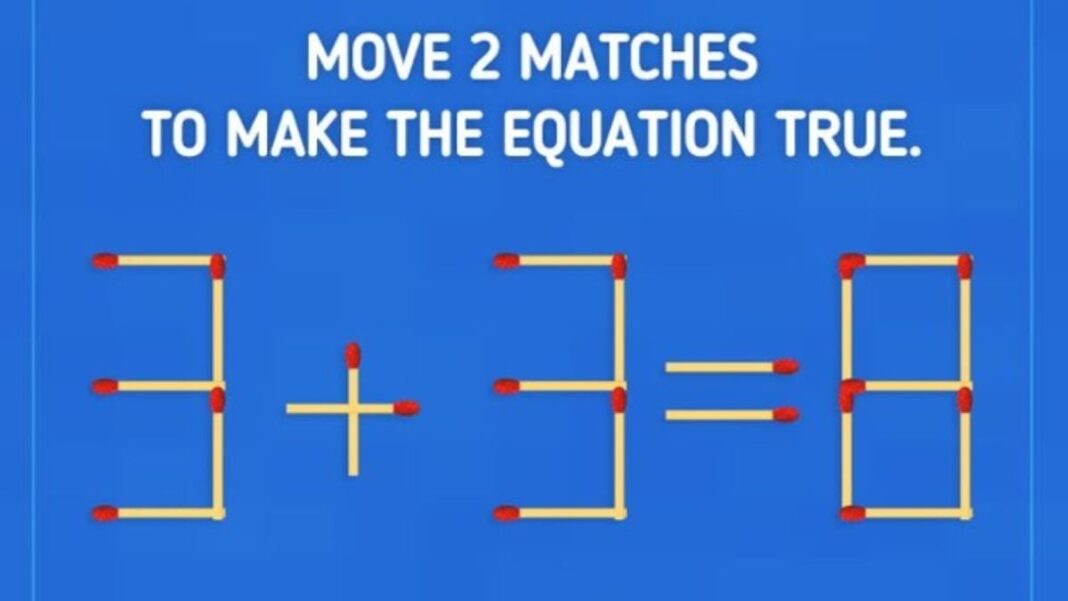Only 2% of people can solve this matchstick equation in 10 seconds,
A mathematical brain teaser challenges people to solve the matchstick equation in just two moves.
The puzzle uses matchsticks to create an equation that shows 3 + 3 = 8 and instructs viewers to make the equation true by moving only two of the matchsticks.
Your task is to make the equation true using any formula or method that comes to mind in 10 seconds or less.
If you figure out which pair to move within the allotted timeframe, you’re among the two percent of people who solved it on their first attempt.
To solve this brain teaser, viewers must think outside the box and consider all options before making matchstick selections.
Because you have to make the equation true, consider that the answer and the plus sign don’t need to stay the same.
First turning the addition equation into a subtraction could narrow down the possibilities and bring you closer to finding the solution.
The answer lies in taking the vertical matchstick from the plus sign and closing out the top area of the first number three to turn it into a nine.
Next, you should remove the vertical matchstick from the center of the eight and place it on the top left side of the second three, turning it into a nine.
Doing this will make the puzzle true by giving you a new equation: 9 + 9 = 0.
Figuring out the answer requires creative and quick thinking, and if you were able to solve it on the first attempt and in 10 seconds or less, your level of intelligence is higher than people who take longer.
These types of brainteasers are important because they can tell you a lot about how you think and view the world and help you develop problem-solving and logical reasoning skills.
As people age, memory can start to deteriorate but brain teasers that force you to recall sequences, patterns or details have been shown to enhance memory retention, according to Erlanger Health.
Studies have shown that brain teasers do play an important role in helping memory and attention span, prevent cognitive decline and increase a person’s mental agility or ability to process information quickly.
A 2021 study revealed that the ‘logic stress and limit stress generated during playing brain teaser games are positive stress, with a desirable effect on the players’ attention.’
‘These two types of stress improve cognitive abilities such as attention, concentration and problem-solving by activating the brain’s frontal lobe,’ the study continued to explain.
And while the matchstick puzzle might have proved tricky for some, not all brain teasers are the same, so rest assured that if you didn’t get it on the first try, you could just have a different way of thinking.









